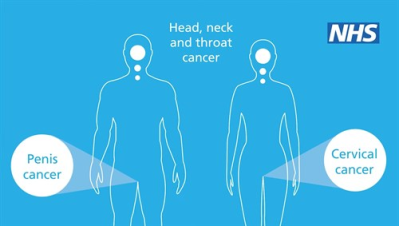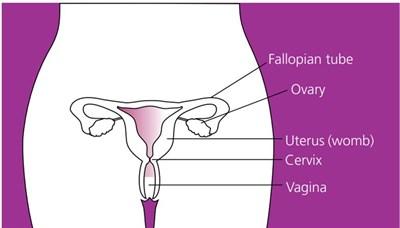You can contact the team by calling 01244 397470
Welcome to the School Aged Immunisation Service (SAIS). We are a dedicated and experienced team consisting of immunisation nurses, clinical support workers and admin staff, working in partnership with families, schools and the wider community to deliver the National School Aged Immunisation Programme.

Vaccinations are the most important way to protect against infectious diseases helping to prevent deaths worldwide. Since vaccinations have been introduced infectious diseases such as Polio are now rarely seen within our communities.
By receiving your vaccinations, you are not only protecting yourself, but you are protecting the wider community which we call herd immunity. This is especially important for those individuals who have a weakened immune system.
After clean water, vaccination is the most effective public health intervention in the world for saving lives and promoting good health (World Health Organisation, 2023).
Routine Childhood Immunisation Schedual - pdf
A Guide to Immunisation for Young People - pdf

Flu Vaccination
The Flu vaccine is safe and effective and helps protect us against the flu virus. Flu is an acute viral infection of the respiratory tract (nose, throat, mouth, lungs and bronchial tubes).
Flu is highly infectious and can spread rapidly in communities. It can lead onto serious illnesses including Bronchitis and Pneumonia.
The childhood Flu vaccine is routinely offered as a nasal flu spay (live vaccine) in schools during the months of September, October, November, December with a catch-up programme during January for any children who had missed their vaccine.
There is also an intramuscular injection (activated vaccine) that can be given in the upper arm. The Flu vaccine can be administered in this way to children and young people who are not able to have the nasal flu spray due to being clinically at risk, have additional needs and for religious or ethical reasons.
Flu Information - NHS
Children's Flu Vaccine - NHS
Flu: 5 Reasons to Vaccinate Your Child - pdf
Protecting Your Child Against Flu - pdf
Protect Yourself Against the Flu (Secondary) - pdf
Flu is a nasty little bug that can give you a bad temperature, cough and sneezes.
To prevent Flu you should:
- CATCH IT - Catch coughs and sneezes with a tissue.
- BIN IT - Put your tissue in a bin.
- KILL IT - Wash your hands to stop any bugs from spreading.
You can fight Flu for a whole year, by having the Flu nasal spray. There are no needles just a quick spray up each of your nostrils. It may tickle a little and your eyes might water for a short time. If you can't have the Flu spray there is another way you can fight the Flu.
We send your Parents and/or Carers a letter to offer the Flu spray, to say yes or no to you having it.
On the day you have your Flu spray the nurse will introduce themself to you and they will ask you some questions which might be:
- “What is your name?”
- “When is your birthday?”
These questions let the Nurse know that your Parent and/or Carer has said yes to you having your Flu spray.
NHS - All about flu and how to stop getting it (pdf)
Parents / Carers:
Flu is highly infectious and can make you feel unwell giving you a high temperature, cough, and sneezes and can spread to family and friends.
Most Young People can fight the Flu by having the Flu nasal spray. There are no needles just a quick spray up each of your nostrils that might make your eyes water slightly.
Some Young People might not be able to have the Flu spray due to health or religious reasons, in this case the Flu vaccination can be given as an injection in your upper arm.
On the day you have your Flu vaccine, the Nurse will introduce themselves, confirm your details on your e-consent form which has been completed by a Parent or Carer. This is a time for us to answer any questions you might have.
If you are worried about having any vaccination before or after, please contact the School Age Immunisation Service, ChatHealth for advice and support.
Flu Information - NHS
Children's Flu Vaccine - NHS
Protect Yourself Against the Flu (Secondary) - pdf
Prior to having any school aged vaccinations from our service an e-mail will be sent via school, this will contain a link to an online e-consent form. Families are asked to complete the e-consent form giving consent.
Please complete the consent form as soon as possible, even if you do not want your Child to receive the vaccination.
This will enable us to update your Child’s records and avoid us contacting you.
All e-consent forms are reviewed prior to us going into your Child’s school and a qualified immunisation Nurse will contact the ‘consenter’ if required.
For Families who do not have access to the internet or if assistance is required, please discuss with your Child’s school or contact us on 01244 397470.

HPV Vaccine - Human Papillomavirus Virus
In year 8 both boys and girls are offered the HPV Vaccine, (Human Papillomavirus Virus). This Vaccine helps protect Young People from different types of Cancer, including cervical cancer, some mouth, throat head and neck cancers.The HPV vaccine also helps protect against genital warts.
The UK Health Security Agency (UKHSA) announced that from 1st September 2023 the HPV Vaccine Programme will change from a two dose to a one dose vaccine schedule for eligible Young People.
It follows advice from the Joint Committee for Vaccination and Immunisation (JCVI) that one dose of HPV Vaccine is just as effective as two doses at providing protection from HPV Infection.
Since the introduction of the vaccine, cervical cancer rates have reduced by almost 90% in women in their 20s who were offered it at ages 12 to 13. See ‘more information about the vaccine.
Human Papillomavirus (HPV) - NHS
HPV Vaccination - NHS
HPV Vaccination Leaflet - pdf
We hope that the information provided in HPV vaccination addresses any concerns you or your Child might have about the vaccination and that you will both feel confident that by having the HPV Vaccine they will be protecting themselves from a very serious disease later in life.
If your Child has had a reaction to any vaccine in the past, or has an allergy to any of the vaccine components (the list of components can be found at EMC - Gardasil) please contact us on 01244 397470 to discuss.
Should you have any other questions or queries about the HPV Vaccination, please contact us on 01244 397470 or email cwp.
Your Child’s school will notify you of the planned date of the session and information about the Vaccinations will be put on your Child’s health records.
If you want to discuss having the vaccine you can speak to your school's Link Nurse in your monthly school drop-in or chat to a Nurse via ChatHealth 07312 263260.
What is HPV?
HPV is the name of a very common group of viruses. They do not cause any problems in most people, but some types can cause genital warts or cancer. HPV affects the skin. There are more than 100 different types.

What is cervical cancer?
Cervical cancer is the most common cancer among women under the age of 35. In the UK, around 3000 cases of cervical cancer are diagnosed every year and about 900 women die from it, those cases are almost all older women who were unable to benefit from the vaccination programme in their younger years. Cervical cancer develops in the cervix (the entrance to the womb). See diagram below).

About the Vaccine
The HPV Vaccine protects against the two types that cause most cases (over 70%) of cervical cancer. Having the HPV vaccine now will help protect you from getting cervical cancer when you are an adult. Since September 2019 boys have been offered the HPV vaccine as well as girls.
The vaccine has passed the strict safety standards for use in the United Kingdom and has been shown to be a very safe vaccine.
I missed my vaccination, can I still have it?
Yes. If you missed either of your vaccinations contact the team using the details above.
Having the vaccination
The Nurse will give you the vaccination in your upper arm. You will be offered your HPV Vaccination in year 8.
Side Effects
As with all vaccines, any reports of side effects are closely monitored and reviewed. See NHS - HPV vaccination overview or see the patient information leaflet (PIL) if you’d like more information on side effects.
Useful Links:
Human Papillomavirus (HPV) - NHS
HPV Vaccination - NHS
HPV Vaccination Leaflet - pdf
High School Drop-in Sessions
ChatHealth
Prior to having any school aged vaccinations from our service an e-mail will be sent via school, this will contain a link to an online e-consent form. Families are asked to complete the e-consent form giving consent.
Please complete the consent form as soon as possible, even if you do not want your Child to receive the vaccination.
This will enable us to update your Child’s records and avoid us contacting you.
All e-consent forms are reviewed prior to us going into your Child’s school and a qualified immunisation Nurse will contact the ‘consenter’ if required.
For Families who do not have access to the internet or if assistance is required, please discuss with your Child’s school or contact us on 01244 397470.

Teenage Booster and Meningitis ACWY Vaccinations
The Teenage Booster known as the ‘3 in 1’ or the ‘Td/IPV’ is given to protect against Tetanus, Diphtheria and Polio.
This is routinely given alongside the ‘Men ACWY’ vaccinations that protects against 4 strains of the Meningococcal Bacteria that causes Meningitis and Septicaemia. These vaccinations are offered in Year 9 to both boys and girls, given one in each arm.
Further information:
3-in-1 Teenage Booster Overview - NHS
3-in-1 Teenage Booster FQA - NHS
3-in-1 Teenage Booster - pdf
MenACWY Vaccine Overview - NHS
Protect Yourself Against Meningitis and Septicaemia (MenACWY) - pdf
Prior to having any school aged vaccinations from our service an e-mail will be sent via school, this will contain a link to an online e-consent form. Families are asked to complete the e-consent form giving consent.
Please complete the consent form as soon as possible, even if you do not want your Child to receive the vaccination.
This will enable us to update your Child’s records and avoid us contacting you.
All e-consent forms are reviewed prior to us going into your Child’s school and a qualified immunisation Nurse will contact the ‘consenter’ if required.
For Families who do not have access to the internet or if assistance is required, please discuss with your Child’s school or contact us on 01244 397470.

MMR Vaccination
If your child has not received 2 doses of the MMR vaccine, we can offer this alongside the Teenage Booster and Men ACWY vaccine.
The MMR vaccine protects against 3 serious illnesses Measles, Mumps and Rubella.
Useful links:
MMR (measles, mumps and rubella) vaccine - NHS
Think Measles - pdf

